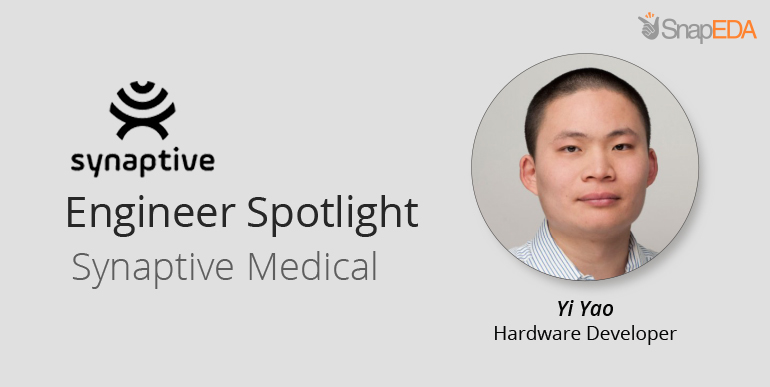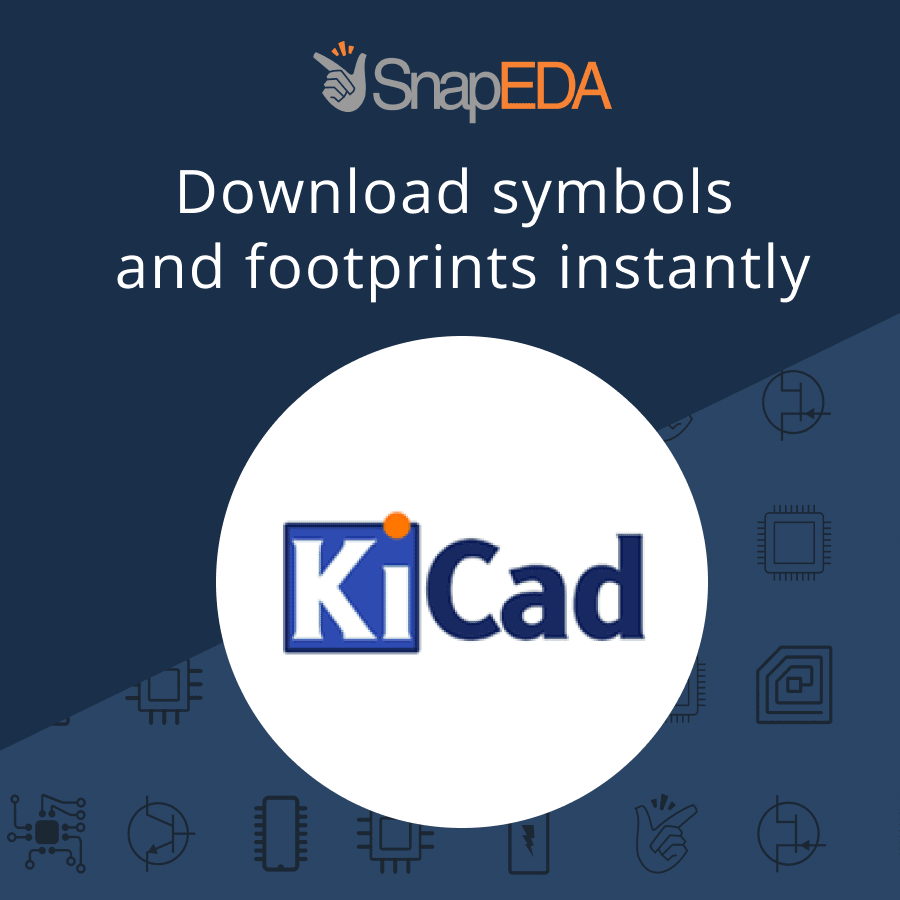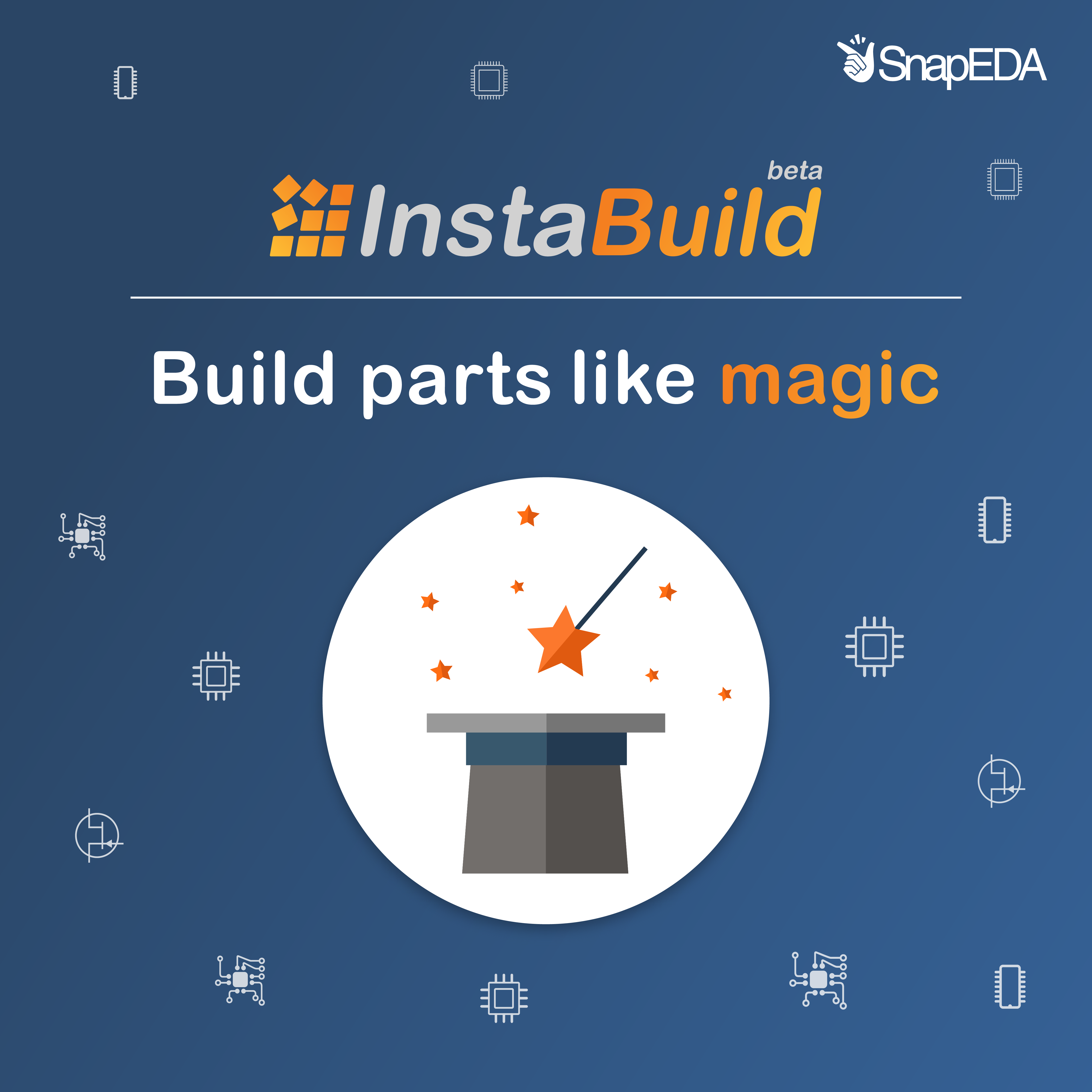
Engineer Spotlight: Yi Yao from Synaptive Medical
Background: I had the pleasure of working with Yi Yao in the Multisim R&D team at National Instruments. Yi was always the go-to person in the office for complex PCB design questions. After that, he went on to co-found a Y Combinator startup called Per Vices, focused on software-defined radio. Currently, Yi is at Synaptive Medical, a medical device and technology company.
Name: Yi Yao
Company: Synaptive Medical
Role: Hardware developer
Location: Toronto, Canada
Hi Yi. Which tools do you use for circuit board design? Why?
Yi Yao: At work, we use Altium. At home, I use a gEDA and KiCad. I am switching more towards KiCad because of the active user community and large library available.
“Make your dreams and ideas into reality! Engineering is about creation and realization of ideas.”
Do you do schematic, layout, or both?
Yi Yao: Definitely both. While it is possible (and common) to decouple the two activities, there are many design optimizations and work flow efficiencies that arise from being in control of both.
Do you use 3D in your PCB layout – how?
Yi Yao: Yes. If a vendor provides a 3D model, I am certain to attach it to the component. Often, a design is not complete with just your circuit board. Most times, I have to design enclosures, heat sinks, and other mechanical features which require an accurate 3D model of the circuit board assembly. This allows me to get the design 90% there before anything gets made.
What types of products do you design generally?
Yi Yao: My work at Synaptive Medical generally focuses on MRI electronics. I’ve designed (or helped with designing) everything from high speed data acquisition cards to safety critical interlock systems.
You did Y Combinator. What was your biggest takeaway from that experience as it relates to product development?
Yi Yao: One of my favourite is to try something fast. If you are to fail, then fail fast. It is applicable not only to your business development, but technical development as well. When dealing with new technologies, often times not yet proven by the vendor, you’ve just got to take the plunge and give it a try. The sooner you find out what works and what doesn’t, the sooner you can make it better.
What makes you good at what you do?
Yi Yao: I am interested in a wide range of subjects within electrical engineering. I don’t see myself as a specialist (e.g. SMPS, embedded or analog). I think my breadth of interests allow me to have a better high level view when it comes to development.
What component do you wish a company made?
Yi Yao: Let’s see… MCUs with better ADCs. Recently, we came across a need for a high performance (16 bit, multi-Msps, multiple channels) ADC with a minimal amount of DSP. The complexity of the DSP was minimal and could be implemented on any ARM MCU without an issue. However, the bandwidth of the sample data would was much more intense than what any MCU could have handled. It would have required an FPGA with the flexible and faster IO capabilities. This was unfortunate as it would have driven up the complexity of our circuit board significantly.
In the end, we scaled down our performance and settled for the ADI ADSP-CM403. They are fantastic processors, but still a bit shy of what we wanted. I just wish MCU vendors would start upping their game when it comes to embedded ADCs. With more connected devices and sensors, the need for better ADCs is inevitable. I think this is something that MCU manufacturers should look at.
Do you have any words of wisdom for EEs, or those wishing to pursue a career in our industry?
Yi Yao: Make your dreams and ideas into reality! Engineering is about creation and realization of ideas. Do you ever say I wish I had something that does x-y-z? Take the plunge and build it! With the falling prices of PCB services, tools and components, the field of EE is becoming more available than ever before. Nothing looks more interesting than presenting your own projects during an interview instead of the standard course work. You’ll have a ton of fun doing it and get something useful in the end.


